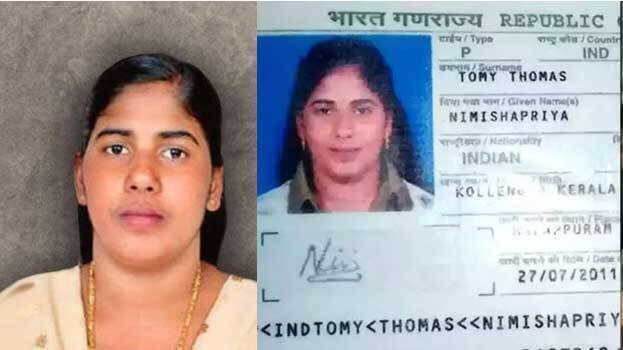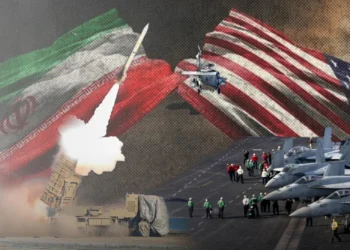Sana’a, Yemen – July 16, 2025 – The life of Nimisha Priya, a nurse from Kerala, India, convicted of murder in Yemen, hangs in the balance as her execution has been temporarily stayed, with her only hope for clemency resting on the concept of “blood money” under Sharia law. Priya, sentenced to death for the 2017 killing of her Yemeni business partner, Talal Abdo Mahdi, faces an uncertain future as the victim’s family has so far rejected offers of financial compensation, demanding retributive justice known as Qisas.
What is Blood Money?
Under Sharia law, practiced in Yemen and other Muslim-majority countries, “blood money” or diyah is a legal provision that allows the family of a murder victim to accept financial compensation in lieu of the death penalty. This practice, rooted in Islamic jurisprudence, offers a pathway to reconciliation by enabling the victim’s heirs to pardon the convicted in exchange for a negotiated sum. The amount varies depending on the crime, local customs, and the family’s stance, and the decision to accept diyah rests solely with the victim’s kin, not the state.
The concept draws from Islamic texts, such as the Quran (Chapter 4, Verse 92), which outlines diyah as compensation—historically set at the equivalent of 100 camels—for unintentional killing, alongside other penalties like freeing a slave or fasting for two months. In modern contexts, diyah is often a substantial monetary payment, intended to provide financial support to the victim’s family while offering the offender a chance at redemption.
Nimisha Priya’s Case
Nimisha Priya, a 37-year-old nurse from Kollengode in Kerala’s Palakkad district, moved to Yemen in 2008 to support her family. She worked in hospitals before opening her own clinic, partnering with Talal Abdo Mahdi to comply with local regulations. According to reports, Mahdi harassed her, stole her money, and confiscated her passport, trapping her in Yemen. In 2017, Priya was convicted of murdering Mahdi, allegedly in self-defense, and sentenced to death by firing squad.
Her execution, originally scheduled for July 16, 2025, was postponed following intense diplomatic efforts by the Indian government and interventions by religious leaders, including the Grand Mufti of India, Kanthapuram A.P. Aboobacker Musliyar. The Indian External Affairs Ministry has been in regular contact with Yemeni authorities, securing additional time to negotiate a resolution. However, Priya’s fate now depends on whether Mahdi’s family will accept diyah.
The Challenge of Securing a Pardon
The Save Nimisha Priya International Action Council, a citizens’ group advocating for her release, has raised approximately $1 million (Rs 8.5 crore), with a Saudi-based trust offering up to Rs 11 crore to support the diyah payment. Despite these efforts, Mahdi’s family, led by his brother Abdel Fattah Mahadhi, has steadfastly refused compensation, insisting on Qisas—retributive justice that mandates the death penalty for murder. In a statement on social media, Abdel Fattah declared, “Blood cannot be bought. Justice cannot be forgotten,” expressing frustration with Indian media portrayals of Priya as a victim.
This refusal complicates negotiations, as the family’s consent is critical. The Indian government, lacking a diplomatic presence in Houthi-controlled Sana’a, faces additional challenges in navigating Yemen’s complex legal and political landscape. Advocates, including Priya’s legal counsel Subhash Chandran and negotiator Samuel Jerome Baskaran, remain hopeful but acknowledge the difficulty of swaying the family’s stance.
Broader Implications
Priya’s case highlights the complexities of navigating Sharia-based legal systems in international disputes. The diyah system, while offering a potential lifeline, underscores the cultural and legal gaps between nations. In India, campaigns to save Priya have gained traction, with support from the diaspora and philanthropists like Kerala billionaire M.A. Yusuf Ali, who has pledged financial assistance. Yet, the victim’s family’s rejection of diyah reflects deep-seated demands for justice, rooted in their interpretation of Islamic law.
Previous cases demonstrate diyah’s potential to save lives. For instance, Abdul Rahim, another Indian on death row in Saudi Arabia, was pardoned in 2018 after a trust facilitated a diyah payment, though he remains in prison until 2026. Priya’s supporters hope for a similar outcome, but time is critical as no new execution date has been set.
Ongoing Efforts
The Indian government continues to engage with Yemeni authorities, while Priya’s mother, Prema Kumari, has been in Yemen for a year, advocating for her daughter’s release. The Save Nimisha Priya International Action Council is intensifying negotiations, with religious leaders and negotiators appealing to the victim’s family for compassion. “If the family agrees to accept blood money, fundraising will not be a hurdle,” said Advocate Subhash Chandran, emphasizing the diaspora’s support.
As the world watches, Nimisha Priya’s case remains a poignant reminder of the delicate interplay between justice, mercy, and diplomacy. Whether diyah will secure her freedom or Qisas will prevail is a question that only Mahdi’s family can answer.




































